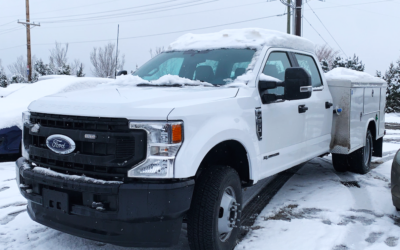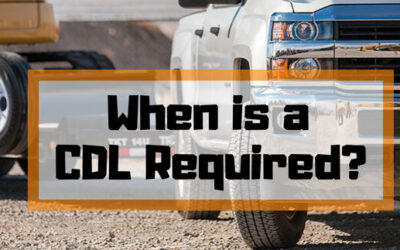Different Types of Trailer Hitches
Drivers connect trailer hitches to their automobiles for a number of reasons. However, while some people require them for professional reasons, such as shoveling snow, others look to pull their fishing boat to the lake or drag a trailer cross country. Just like when doing anything else, you are going to need the right tool for the job when towing a trailer or another vehicle, for that matter. One of the main advantages of using the right types of trailer hitches is that it makes long-distance towing possible. Keeping that in mind, here, we are going to take a quick look at how you can choose the best types of hitches for your trailer.
Types of Trailer Hitches
Before you can choose the best trailer hitch, you need to know about the different types of trailer hitches available in the market today. Trailer hitches are divided into classes. This can tell you a lot about the usage and durability of the trailer hitch. The higher the trailer class number, the higher its capacity and larger the receiver tube is. It’s important to know that not every receiver hitch will work for any vehicle so be sure to check their compatibility. Here’s a quick breakdown of the different types of hitches that you can choose from:
Class 1 Hitch
A class 1 hitch is versatile enough to work with just about any towing vehicle, along with vehicles where the light transmission coolers are well maintained. These are considered to be light-duty receiver hitches and are the most basic type of hitch you can get for your vehicle. The class 1 hitch is mainly used to mount small cargo carriers, bikes, or small, enclosed trailers. Class 1 hitches are designed to support a weight of up to 2,000 pounds. It is best to go for a 1 1/4 inch x 1 1/4 inch receiver, with a tongue weight capacity of at least 200 pounds.
Class 2 Hitch
The class 2 hitch is also known as a regular receiver hitch. This is another type of trailer hitch that’s commonly installed on the frame of towing vehicles, such as SUVs, mid size cars, and minivans. In other words, those vehicles that contain regular-duty transmission coolers that can handle a weight of not more than 3,500 pounds. The class 2 hitch is mostly used for towing trailers, small boats, and ATVs.
Class 3 Hitch
This type of hitch is known as a heavy-duty option and is considered the best-in-class of towing hitches. The class 3 hitch is attached to the frame of a vehicle with the help of a drawbar. This is one of the reasons why the class 3 trailer hitch is also known as an under-car receiver hitch. This also makes it a great option for towing medium to large-sized SUVs or pick-ups, campers, or boats.
Class 4 Hitch
If you are looking to tow anything that’s over 12 feet, you will want the class 4 hitch. This hitch has been designed specifically to tow heavy machinery and other large-size vehicles. This is why it is called the “super duty receiving hitch.” The class 4 hitch can tow a weight of up to 14,000 pounds with relative ease. The large towing capacity of the class 4 hitch makes them the ideal choice for towing large trailers and campers. You should note that the class 4 hitch will need a two or 2.5-inch receiver to attach it to the vehicle.
5th Wheel Hitch
The 5th wheel hitch is commonly used to haul heavy machinery and cargo and transportation vehicles. This trailer hitch is more advanced than the options mentioned above. As mentioned, the 5th wheel hitch is built to support a weight of up to 20,000 pounds and has a tongue weight capacity of 1,700 pounds. These types of hitches are fixed over and above the rear axle of a truck, and each unit is connected to the towed trailer with the help of a central kingpin. It should be noted that the 5th wheel hitch is designed specifically for flatbed trucks and pick-ups. Another type of hitch used for the same purpose is the Gooseneck hitch, which is mostly used for industrial or commercial trailers, as well as livestock or horse trailers.
Front-Mounted Hitch
The front-mounted hitch is fixed at the front of the vehicle. Being installed in this position allows for more versatility when it comes to attachments as well as applications, which may include snow plowing, scooping, winch insertions, and small cargo carriers. If you are looking to get a front-mount hitch, you should first consult with an expert since this type of trailer hitch does not use the same class rating system as rear mount hitches.
Gooseneck Hitch
The gooseneck hitch is mounted to the bed of the tuck or in the front of the rear axles. This hitch is designed for pickup trucks only and frees up space in the bed truck for other items. Typically this hitch is used on farms for livestock or other heavy duty commercial uses. The hitch allows for tighter turns compared to typical towing hitches.
Pintle Hitch
The Pintle Hitch is another heavy duty towing hitch that is designed to handle rough terrain. These hitches are typically used for industrial, construction, agricultural, or military scenarios. The pintle part of the system is the hook that is attached to the truck while the lunette or the ring part is attached to the trailer. This hitch may be much louder than others but allows for heavy duty tows from 10,000 to 60,000 lbs.
How to Choose the Best Trailer Hitch
Choosing a trailer hitch all boils down to keeping in mind the various factors that govern your need for different types of hitches for your trailer in the first place. This will help you select the right option for the job:
- Do your homework – If you don’t know anything about trailer hitches, do your research and ask a professional for guidance. You can also go online and read reviews on the various options.
- Aesthetics – While this should not be the first priority when selecting a trailer hitch, you would want to invest in a sleek-looking trailer hitch. Here, you will have to make the choice between the square tubing and round tubing options.
- Accessories – The trailer hitch is an accessory to your vehicle, but it needs accessories too. For instance, you might need additional accessories for towing, such as cargo management accessories as well as hitch mounting accessories. So, it’s best to know exactly what purpose you will be using the trailer hitch for and get the recommended accessories as well.
Ending Note
Knowing how to choose the best hitch for your trailer can be a tough nut to crack, especially if you don’t have a clue about the options and what would be best for your trailer. If you happen to be searching for the right trailer hitch for your vehicle, then the tips mentioned above should help you make a more informed decision.
If purchasing a hitch for a specific job seems a little outside your price range, check out our truck rentals for ready-to-go vehicles compatible with any trailer hitch you might have.






